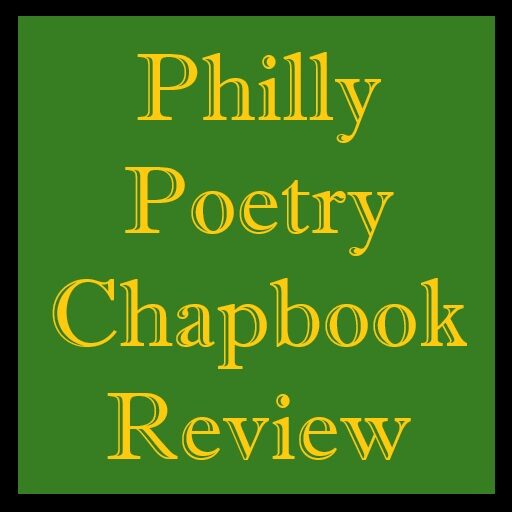Due to difficulties in obtaining information in advance of chapbook releases, chapbook listings for the previous month are published at the end of each month. This post contains information about poetry chapbooks that we know about published during January, 2024.
Information, including product descriptions, is provided by the publisher and not a critical judgment. If we cover the book on this site, links will be included.
Northwestern University Press
This Is My Body, Jonathan Fletcher
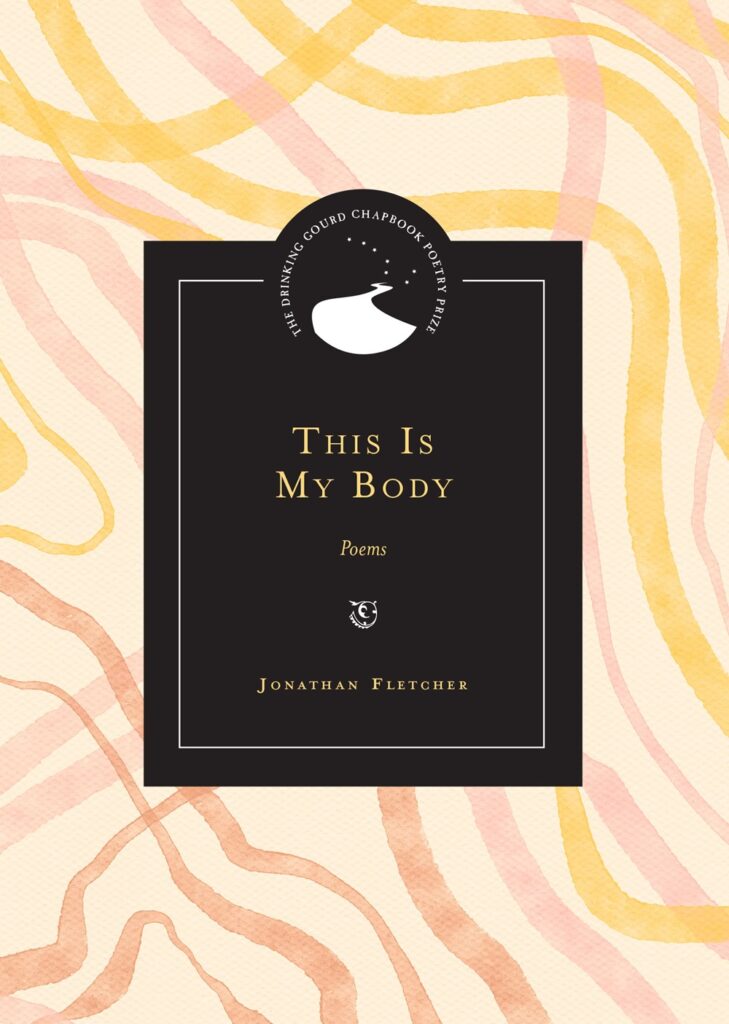
This Is My Body readily and unapologetically examines issues of race and ethnicity, ancestry and community, mental illness and recovery, queer sexuality and identity, and the body and disability. Traditionally religious language and hopeful imagery abound; so, too, do their spiritual antagonists: doubt, loss, isolation, and despair. But even in the darkest moments of a troubled inner life, insight and triumph intervene and sometimes even linger. An intimate exploration of the human experience, this debut collection proves itself more than the sum of its interior encounters—however revelatory or transformative any one given experience might be. It is a timely and necessary exercise in faith.
Tupelo Press
The Haunting, Cate Peebles
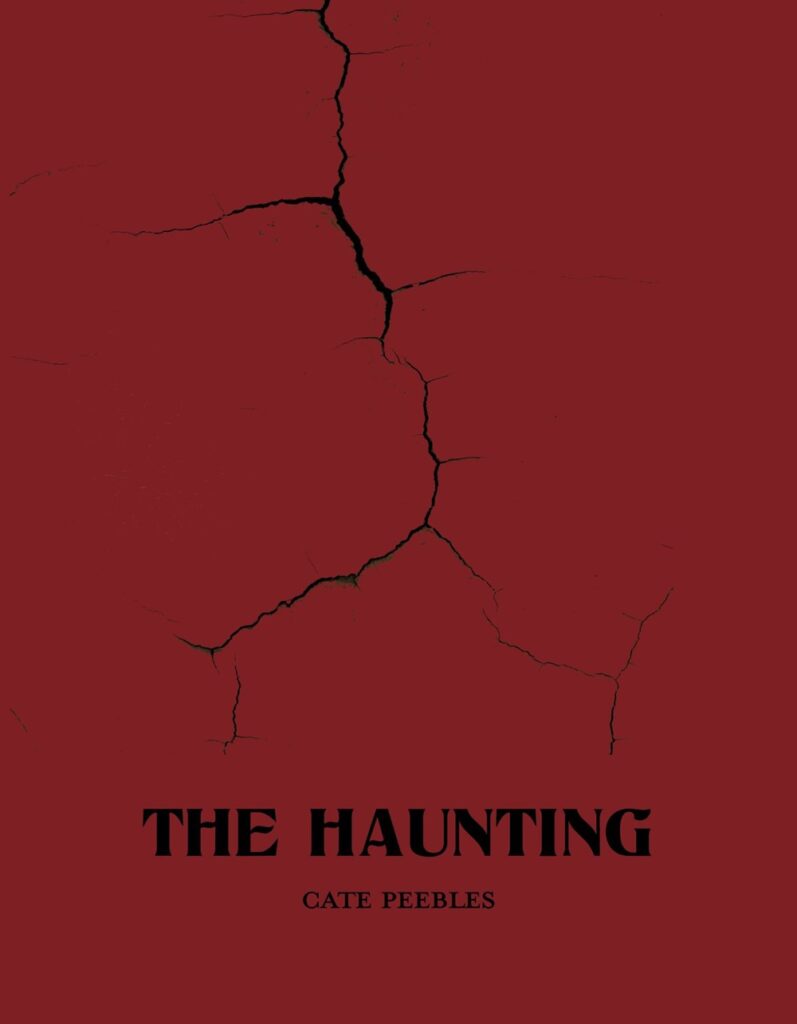
The Haunting is a book of feminist-horror visitations, incantations, and possessions embodied in unruly forms that subvert genre and generic definitions of poetry and prose. This is a collection that is concerned with how the living and the dead coexist, how to survive trauma, and the power of persistence. Drawing from a variety of texts including Mary Shelley’s Frankenstein, Emily Bronte’s Wuthering Heights, twentieth-century horror films, the Velvet Underground, and Ovid, The Haunting explores the anxieties of ancestral and artistic inheritance, rage, transformation, motherhood, maternal ambivalence, and the drive to create.
Bottlecap Press
Attention Song, Daphne Rose
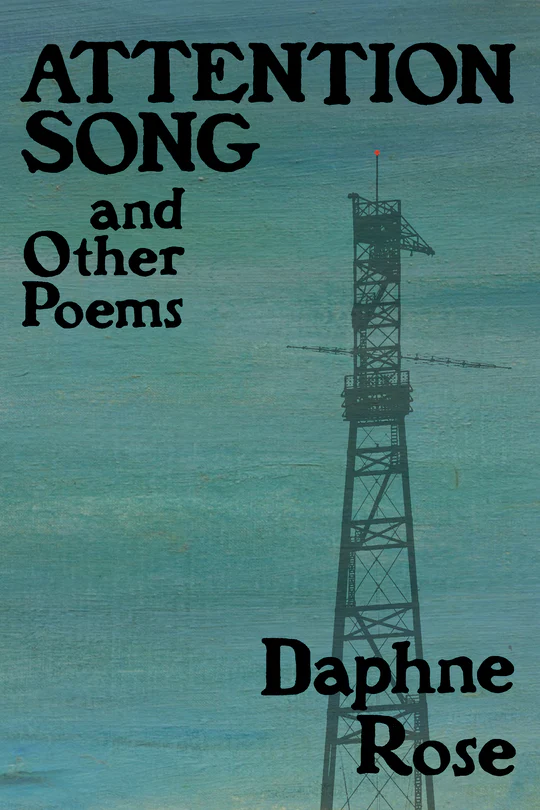
Attention Song and Other Poems is a reflection on young adulthood through motifs of rural Northern California: wildfire smoke, Buddhist temples, oranges, the railroads at golden hour, sprawling orchards, mothers, and oat milk. It is a short collection of 16 poems—primarily free verse—exploring the grief, resentment, and tenderness one feels for the people and places of one’s childhood, and the simple glory of ordinary things.
Part eulogy, part diary, and part letter of love, Attention Song celebrates “the fleeting, luminous place / between what has been and what could yet be.”
Riverdog, Natasha Wolkwitz
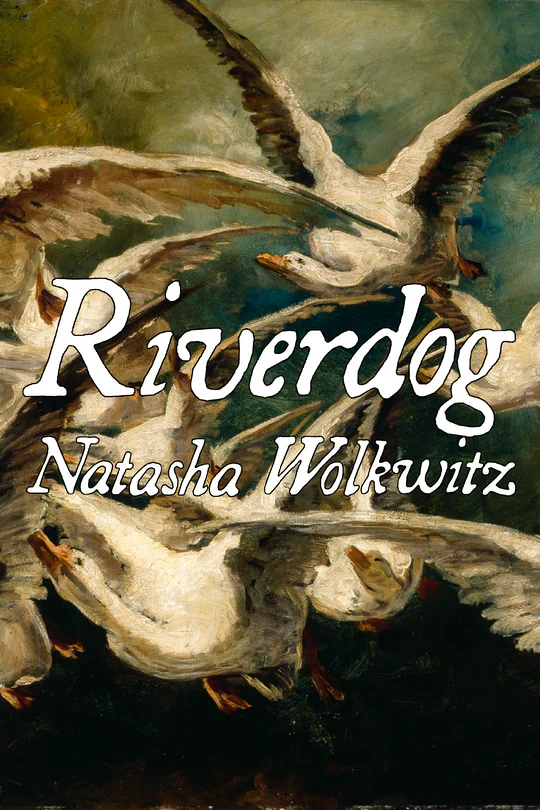
Riverdog is a response to the love found under leaves. It was written partly amongst the flora and fauna of New Jersey, and partly at the window of any coffee shop on the west side of New York City. The book exists in two parts: The Host, where we get our footing, take in the sun, and settle in the dirt, and The Haunting, which steps into the realities that were so much easier to turn our heads from in The Host.
Together The Host and The Haunting create a pastoral world of observation, confession, and a bit of magical thinking, which together float us gently down the path towards the Riverdog.
Can’t Beat the Price, Sam Kerbel
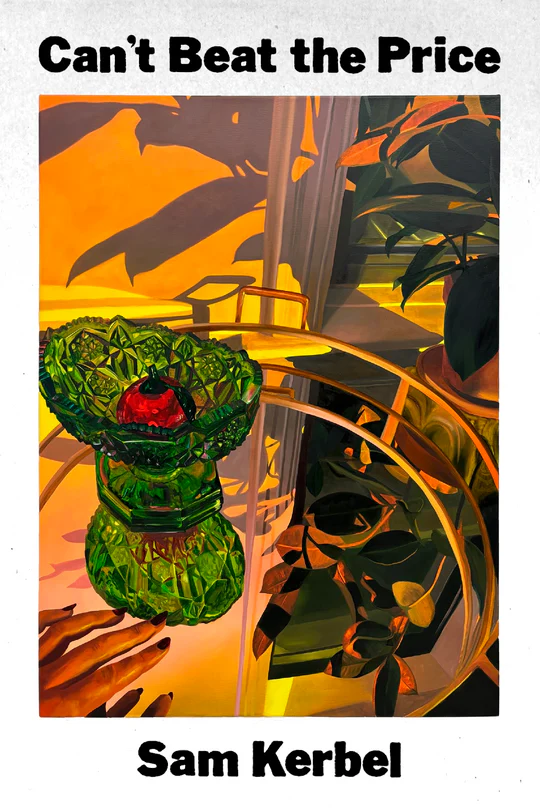
The poems in Can’t Beat the Price are not riddles themselves but often take on the tone of a riddle, getting at something not quite being said. What we are doing most of the time, in other words. And when you realize this, you understand how hard it is to be human, and how much work there is to be done. And if one isn’t careful, you’ll succumb to a doom state. Perhaps you’ll think, am I the only one alive? Is everyone else walking around in a trance?
Glass Shards in a Diamond Mine, Kikimora Morozova
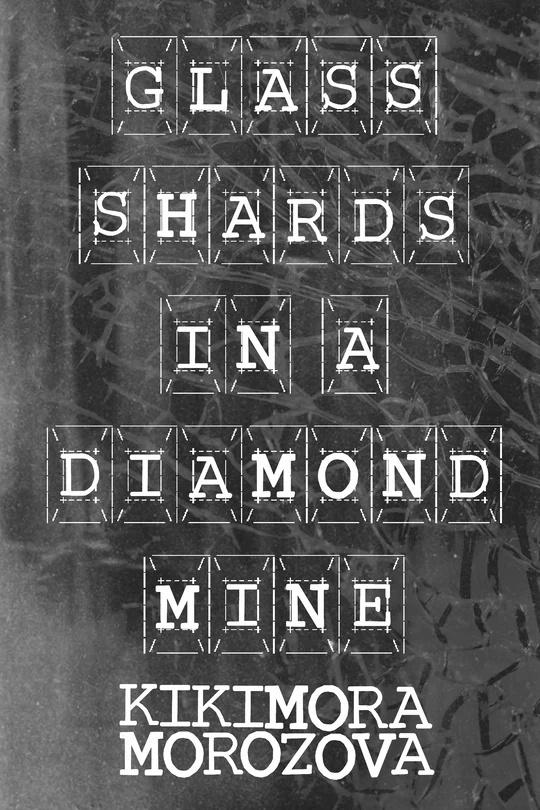
Glass Shards in a Diamond Mine is a debut collection of secrets, in poem form, which examine what it takes to cherish the memory of a person, living or dead. The secrets in Glass Shards in a Diamond Mine use both rapid-fire, internally inconsistent descriptors and highly structured narrative stanzas to quick-change between challenging and embracing order, linearity, defeatism, hope, and unconditional love. In the highly chaotic environment of the chapbook, poems beckon a reader to wonder how, in the absence of generational remembrance or a detailed logbook, to keep track of their own sekretiki, lest they begin wiggling free.
Voyeur, Edward Hemstreet
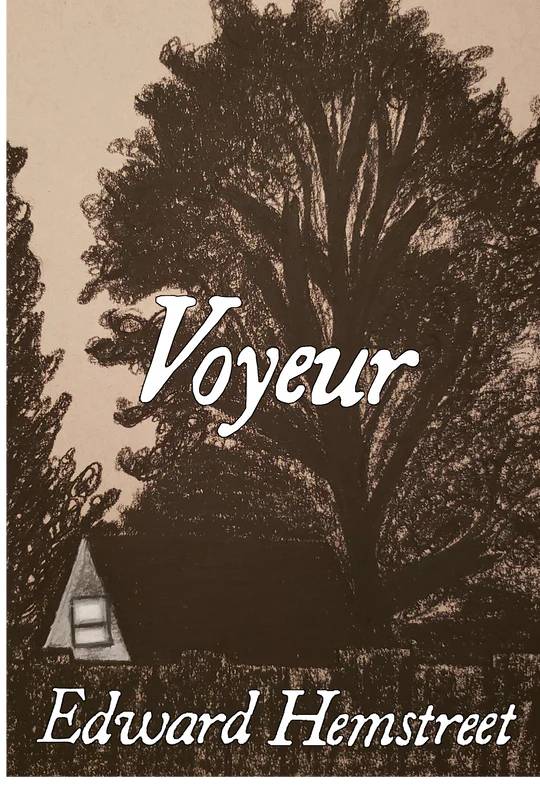
Looking in from outside; experiencing humanity as a surrogate; living only in third person… Not all voyeurs are indecent, & these are their marks. They wake detached from their days, wandering through dry land as husks, frail forms drifting between moments & connections. Life’s milestones erode to a fine sand carried by the wind — love becomes an obscure legend, & happiness is everywhere but within. It becomes habitual to know & feel joy only in the happenings of others. It is an intense warmth, but soon after shrivels in the cold of a desert night.
These works — written across the last six years — were assembled for these ‘voyeurs’, & those who find themselves edging closer to that barren land as time progresses. Each poem is a song of absence, distance, & loss on its path, or a fatigued hymn of hope beyond it. It is easy to notice the beauty of life only in the lives of others; the amount of souls who feel this way is colossal & certainly underestimated. Catharsis is ointment for that ache, & that is what this collection intends to deliver.
Ice Breakers, Brandon Thein An Vu
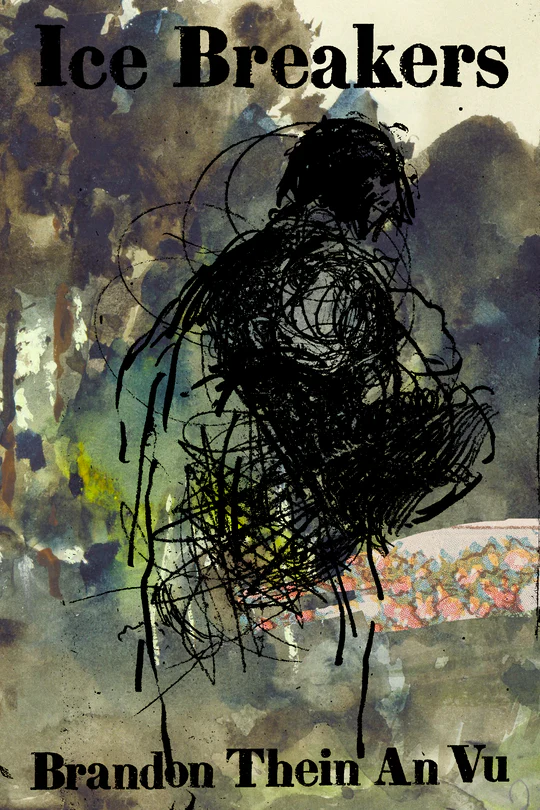
Brandon Thein An Vu is an introvert. He’s also a high school English teacher. In Ice Breakers, Vu finds both discomfort and acceptance in the irony of his identities. How growing up, he’d struggle with presentations and saying his name for attendance. Now he stands in front of a classroom for a living. Vu gets honest about the small inconveniences of being the only adult in the room—like having to introduce himself to new students every year.
In this collection of poems, Vu studies the morning dust, contemplates why his lessons aren’t resonating, and audits what it means to love his parents’ second language while barely understanding their first. Ice Breakers is about not looking the part, and the anxiety of first impressions.
Spilled Milk, A.K. Shakour
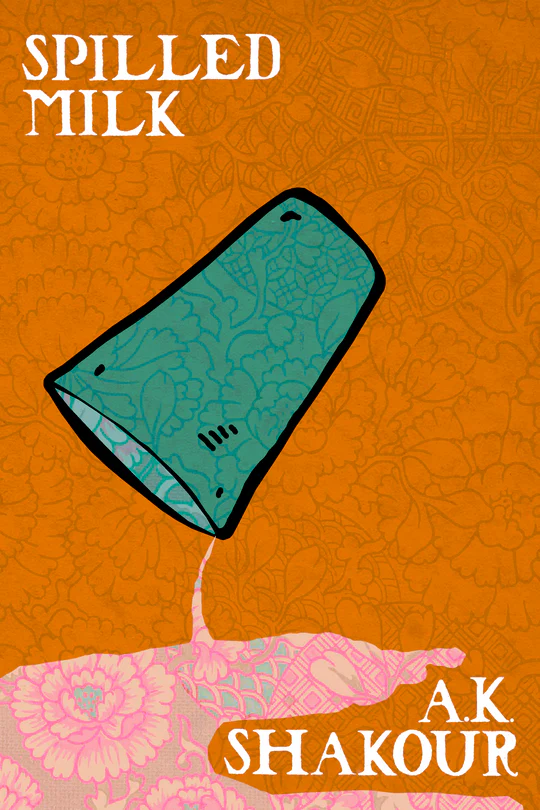
Spilled Milk is a collection of poetry which illuminates what a woman looks like, when she spills over.
Do you think heartbreak has an expiration date? Have you ever become undone by seeing your ex post on social media? What are you supposed to do with your feelings, after the love is poured down the drain?
Spilled Milk is a soft flashback to the past, exploring these questions without finding many answers. This collection reflects on healing from a breakup, starting a relationship with God, and witnessing the marriage of a younger sister. Deleted photographs, bits of Bible verses, and half-full glasses of hope are captured in these 27 poems.
Finishing Line Press
Bells, Rodger LeGrand
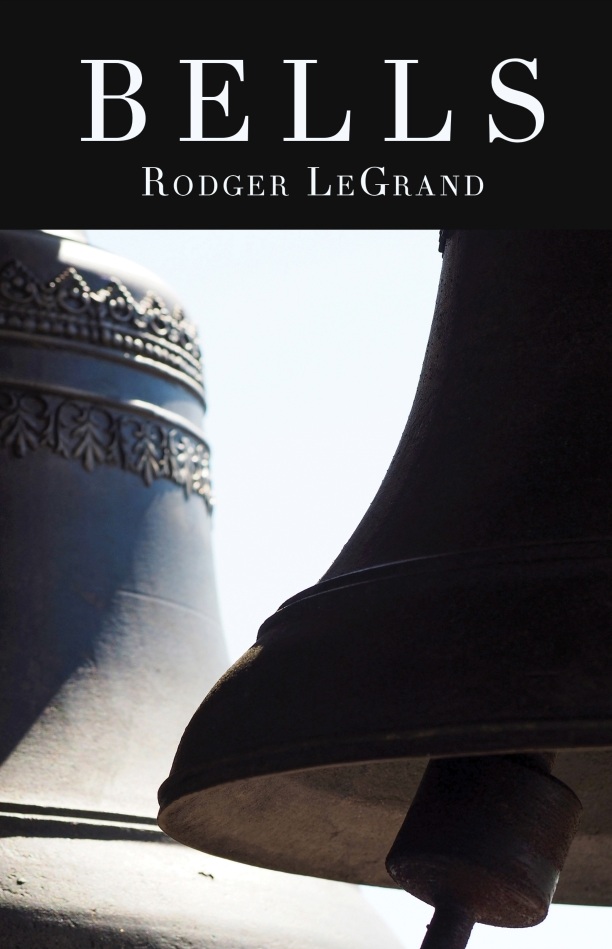
Rodger LeGrand is a Pushcart nominated poet and the author of several collections of poetry, including Studies for a Self-Portrait (Big Table 2019) and Two Thirds Water (Flutter Press 2018). His first short collection of poetry, Various Ways of Thinking About the Universe, was published in 2005 by Finishing Line Press. His poems have appeared in many literary journals, including Evening Street Review, Cortland Review, and Boston Literary Magazine. He has taught writing at MIT and the University of Pennsylvania. Currently he designs humanitarian education courses at the Harvard Humanitarian Initiative at Harvard University.
And Yes, This Too, Laura Pelton-Sweet

And Yes, This Too is a journey through a transformational period of midlife. In her first collection of poems, Laura Pelton Sweet sits with pain, serves tea to fear, dances with joy, and dips into an overwhelming pool of gratitude. These poems are one woman’s observations of the natural world and the fallibility of being human.
Sun Stains, Callie Hitchcock
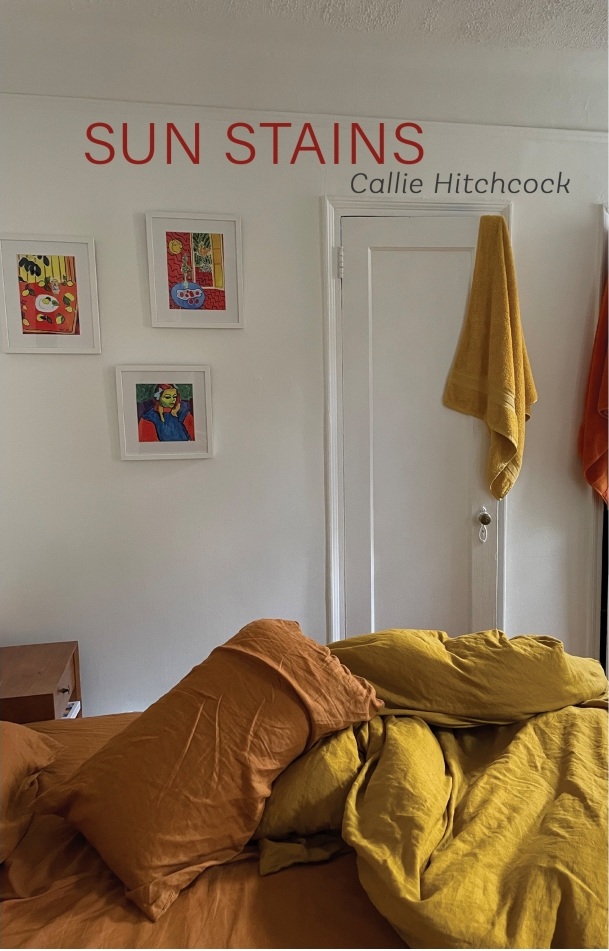
Gathering poems from over ten years of writing, Sun Stains by Callie Hitchcock searches for love and meaning in uncertainty. These poems are saturated with loneliness, longing, hope, oblivion, fantasy, dreaming, love, and the warmth of the sun. Together, they form a light to walk through the unknown.
Callie Hitchcock is a writer, journalist, and graduate of the NYU journalism Master’s degree for Cultural Reporting and Criticism.
Fallen Love, Deirdre Garr Johns
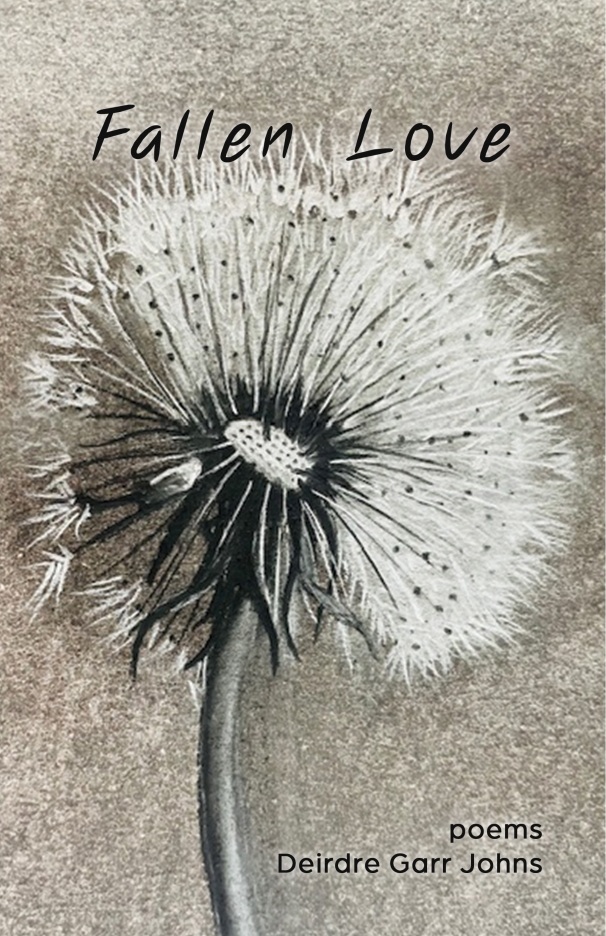
Fallen Love is a collection of poems that explores the ways in which love can build, break, and restore the spirit. Fragments of memories establish the structure of Fallen Love, with carefully sequenced poems that create a journey through the phases of love. To fall in love, we must open ourselves to vulnerability and be prepared to confront the difficult nature of fallen love. A narrative voice evokes an intimate tone that will resonate with those who desire to love and to be loved. Strong imagery and subtle rhymes expose love’s gentle and tumultuous nature, capturing its ability to take us by the hand and bring us to our knees. Though this collection offers a singular experience, the larger journey explored is the relationship one has with the self, which transcends the physical nature of love. In an attempt to reconcile love’s simple, yet complex nature, Fallen Love reveals a deeper understanding about love’s transformative power.
RedRaw, Ali Meyung
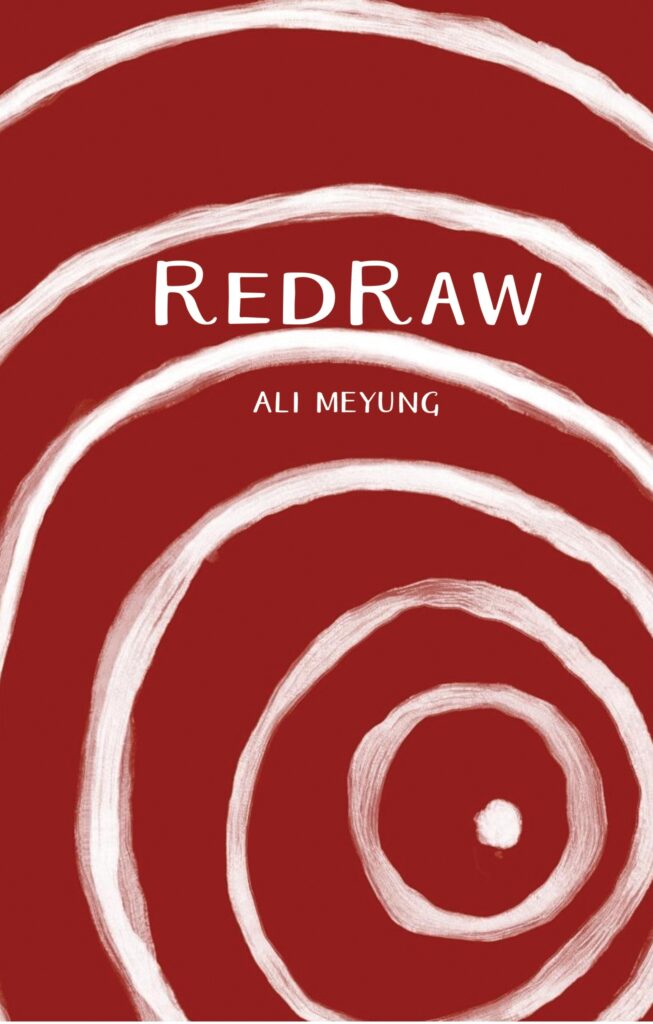
RedRaw is a sacred letter to the body, touched by scalpels, scar tissue, retrograde menstruation, tiny stars of elliptical light. We see the body in its deepest color / stark bare. The fascia scraped thin / down to its riddled core. But for every “ritual wound,” there’s also translation: a grandmother’s “sovereign womb” as constellation. A vessel for matrilineal wonder. This work is ovumnal, prompting your “body to stop short / & feel the vibrations of underworld rivers & hear chthonic deity whispering.” A murmur, a howl, the sounds of honed blade at the threshold. Keen! –Michelle Naka Pierce, author of Continuous Frieze Bordering Red
A Flower Burst Open, Autumn Newman
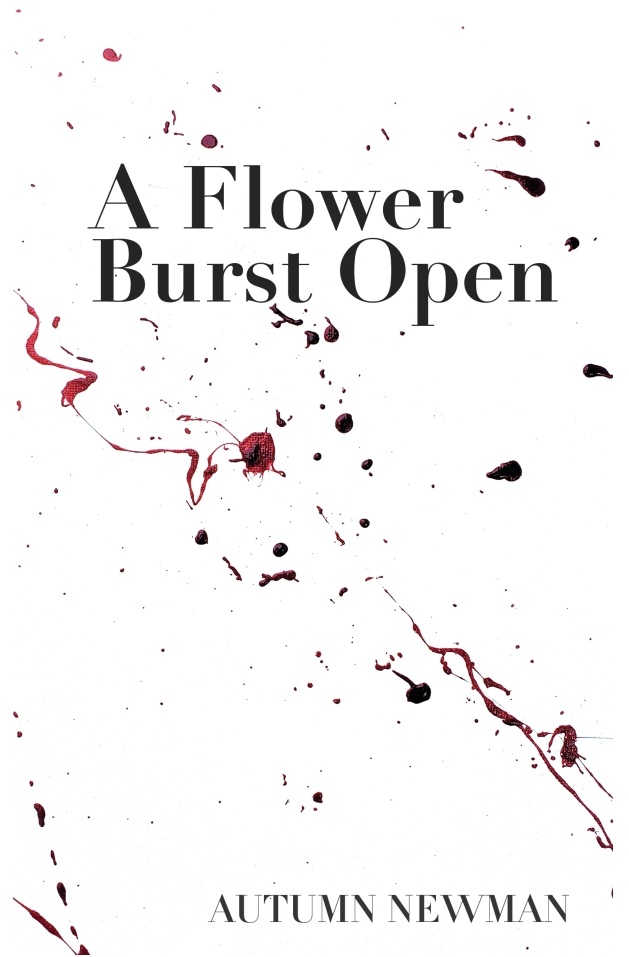
A Flower Burst Open is one woman’s journey through the savagery and complexity of domestic violence. Written in striking verse that cuts to the bone, these poems offer no easy answers. They are startlingly intimate and unflinchingly honest. Exquisitely calibrated meters and forms add another layer of depth to these tightly woven poems. This riveting chapbook bears witness to the indomitable spirit of women.
Porch Light, Katy Keffer
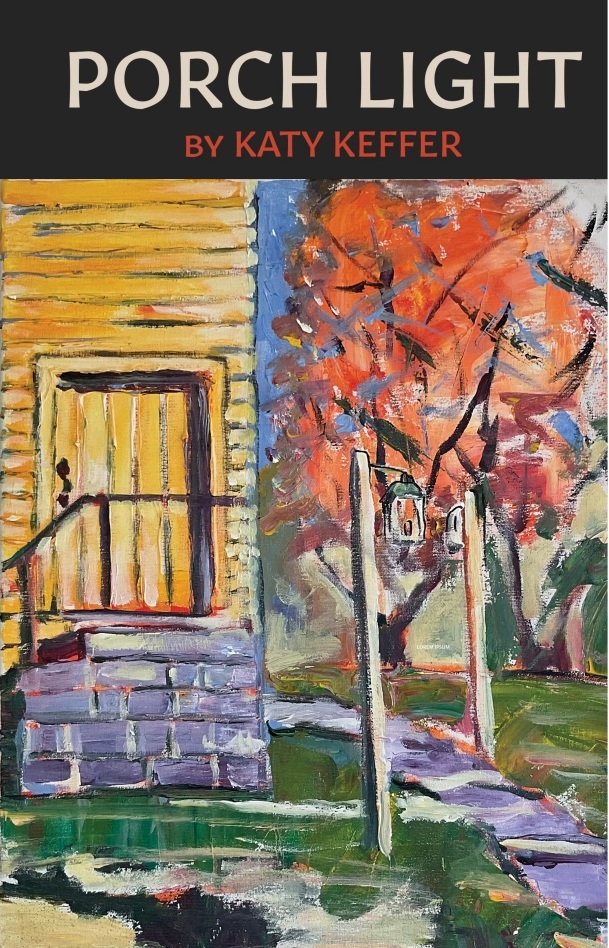
At its heart, Porch Light is a story about growing up and gratitude. This debut collection of poems is an appreciation of childhood, nature, and character instilled from a central Kentucky upbringing. Porch Light begins in the rolling knobs outside Perryville, Kentucky, with the celebration of a freight train’s “Red Caboose” to the joy of a school “Snow Day.” There is self-reflection: adulthood’s uncertainty in “Pressure” to belief in oneself in “You Have Worth.” Through it all is an abundance of joy—love of home in “Her Name Was Percy Shades” and love at home in “Dear Kevin.” Porch Light offers gentle tribute to the places and memories that comprise our spirit and encourage lasting acceptance.
Dying Dog Poems, Lynne Schmidt
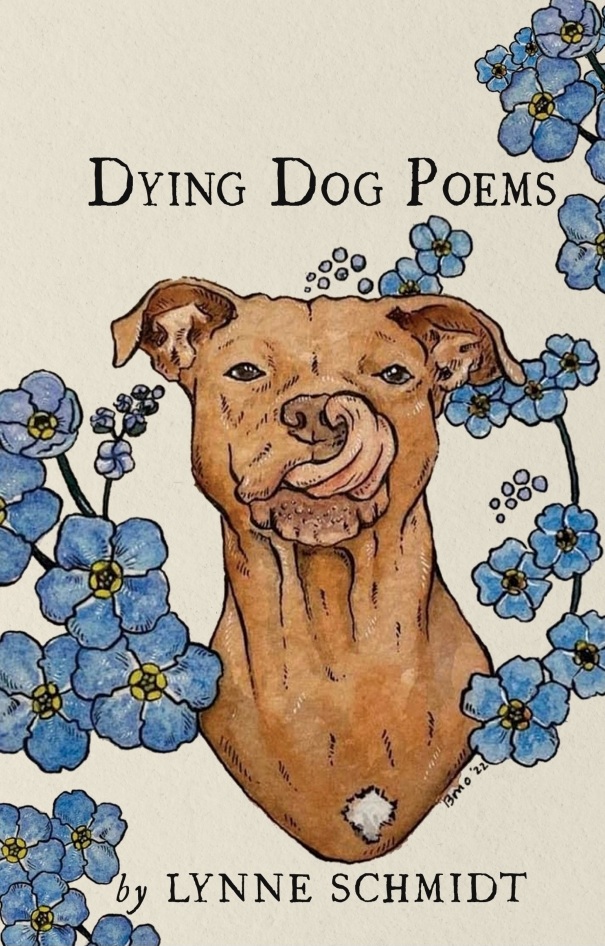
After the cancer diagnosis, the veterinarian said, “I think we can beat this.” What came next was five years of medications, surgery after surgery, Cushings Disease, two more cancers, and the slow decline of a beloved pit bull. Dying Dog Poems explores the impacts of canine cancer, managing hospice care, and the decision of when to choose compassion and let go.
Lynne Schmidt is the queer, neurodivergent grandchild of a Holocaust survivor, and a mental health professional with a focus in trauma and healing.
The Red Strobe, Theta Pavis
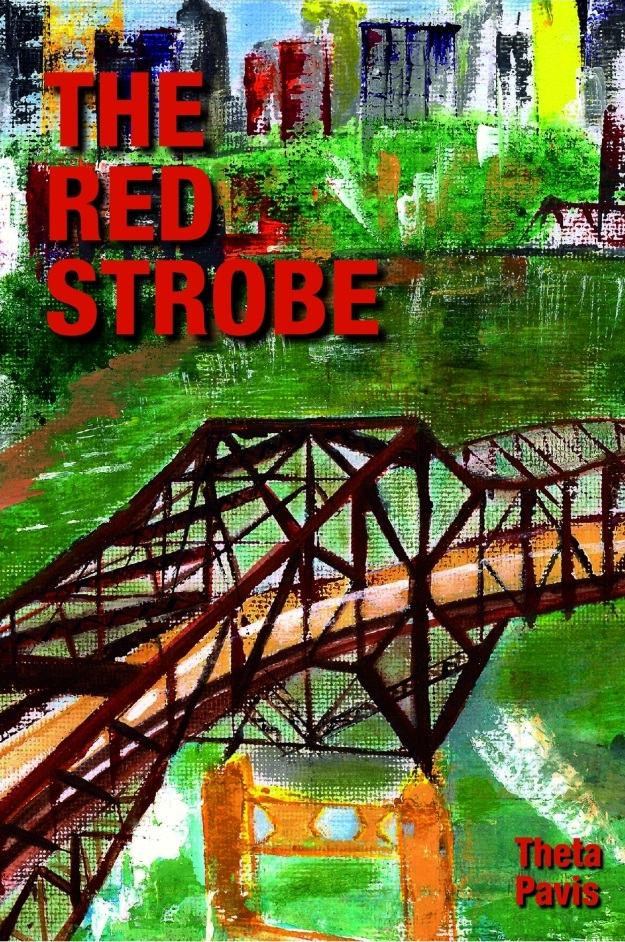
This fierce book unfolds in a landscape marked with loss. Its sparse, direct, and gorgeous language celebrates survival, daughters, mothers, sisters and the whiplash of girlhood. The Red Strobe bears witness to the labor of caretaking and love.
Theta Pavis is a writer and educator. Her writing has appeared in The Journal of New Jersey Poets, The Red Wheelbarrow, Mom Egg Review, Spillwords Press, Why to These Rocks: 50 Years of Poetry from the Community of Writers (HeyDay Books), and many others. Her poems have been performed onstage by Poetry Well in New York. She works in university communications and lives in Jersey City, NJ.
Raccoon Latrine, Ellen Ferguson
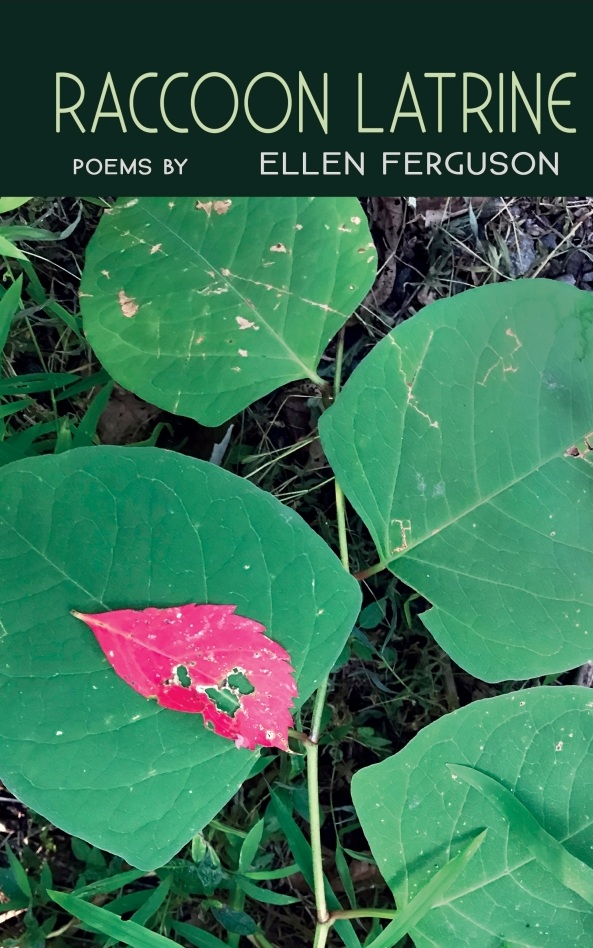
Raccoon Latrine invites readers to sit outside for a while, outside themselves, outside their back steps, outside all the other things. These poems suggest there’s somewhere else to go, somewhere in nature. The more intrepid short poems lightly massage the memories that rise in the evening while others, afraid to go out at night, watch the raccoons like television as they look for a place on the porch to relax. Sometimes experiencing nature fully is as simple as turning the page, whether you are a foster beagle, a character on the Sopranos, or anyone else you will find hanging out on the porch, or just under it.
Venus Anadyomene, Alyssa Sinclair
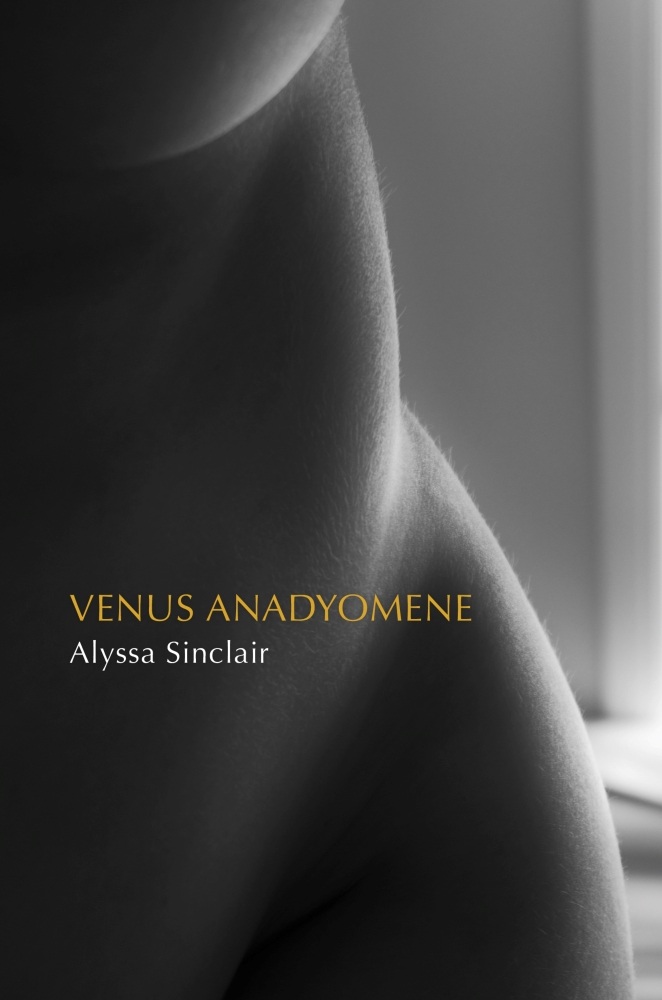
Venus Anadyomene chronicles the trauma and change endured by a woman’s body through pregnancy and childbirth, while exploring the intersection of mental and physical health. The poems in this book consider the threat of climate change, parenting and existing as a woman within the political landscape in Texas, and a mother’s longing for a safer and more beautiful existence for her children. These poems play with form and voice, including prose poems, word games and prayers that evoke the visceral, the spiritual, and how we exist in between.
Painted Women in the Walls, Jenny Benjamin
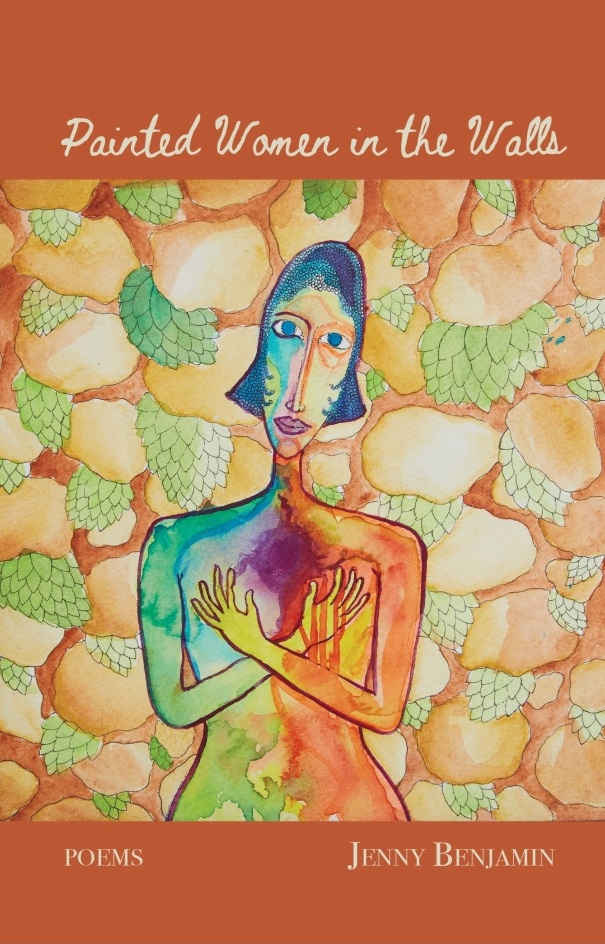
Painted Women in the Walls houses a multitude of women’s voices, from Sylivia Plath to Lizzie Siddel to women etched on Tarot cards. Within the walls, other characters, whose labels and roles shift, speak in lyrical lines about familial and romantic love, loss, mystery, injustice, and discovery. The poems, infused with internal rhymes, create a mosaic where fantasy, domesticity, and fable meet.
Beneath Occluded Shine, Claudia M. Stanek
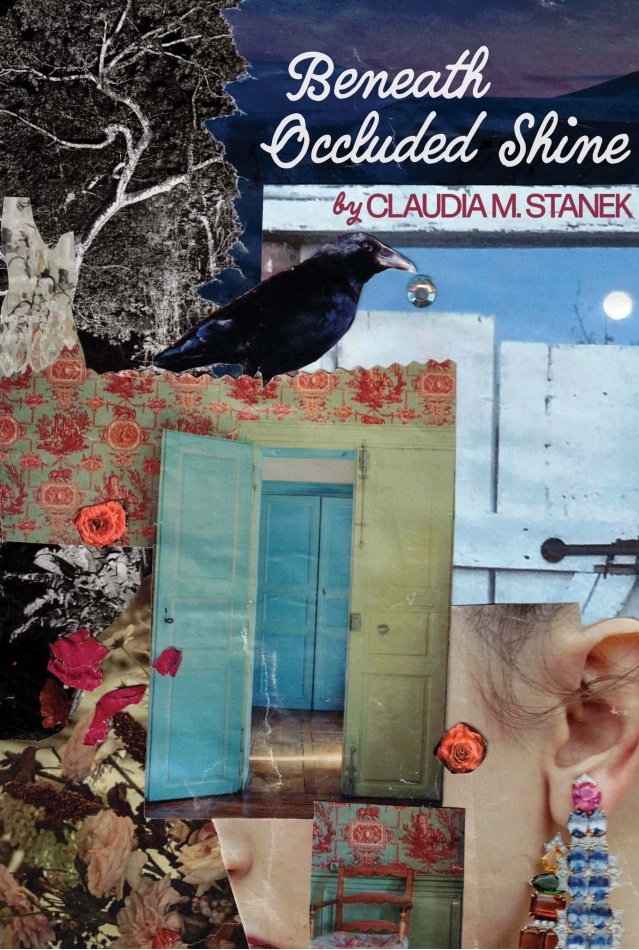
Fifty years after Pablo Neruda completed his Book of Questions, Claudia Stanek bravely reaches back through time—long before Neruda, into the deepest parts of our shared humanity—in search of answers. Threaded with the spiritual, the historical, and the natural, Stanek weaves together these 16 short but powerful poems in Beneath Occluded Shine that embrace the surreal, push up against the paradoxical, and remind readers that sometimes a question can only be answered with another question. –Denton Loving, author of Tamp
The problem of deer, Lydia T. Liu
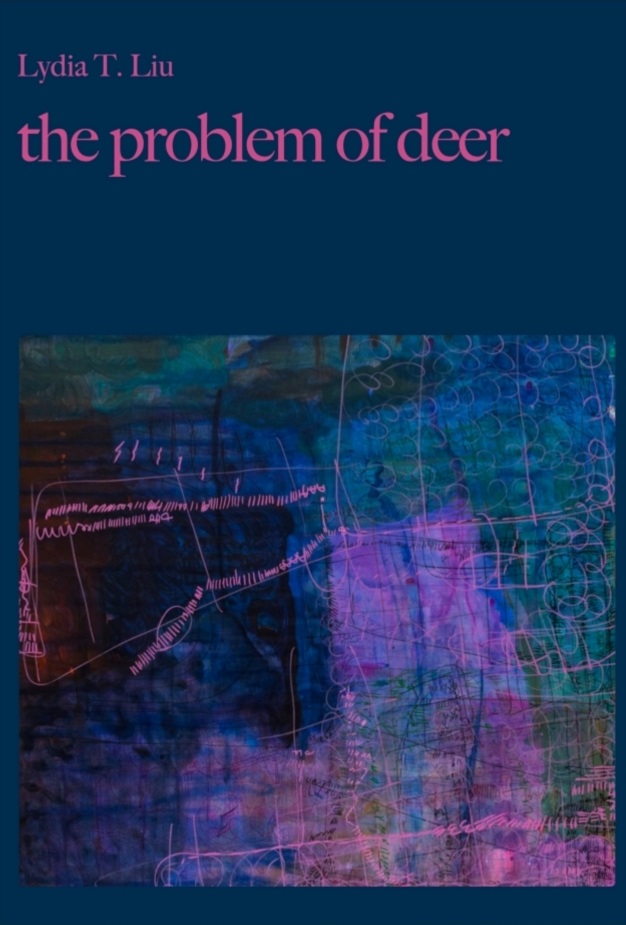
The problem of deer is a lyrical exploration of the transitory landscapes that shape a diasporic experience. It traces the shifting cartographies of the heart, moving from the dissonances of history and geographical origins to the multiplicities of desire and language. These poems find beauty in their gentle yet persistent interrogations—through the voice of a young peripatetic.
Lost & Found, Joann Deiudicibus
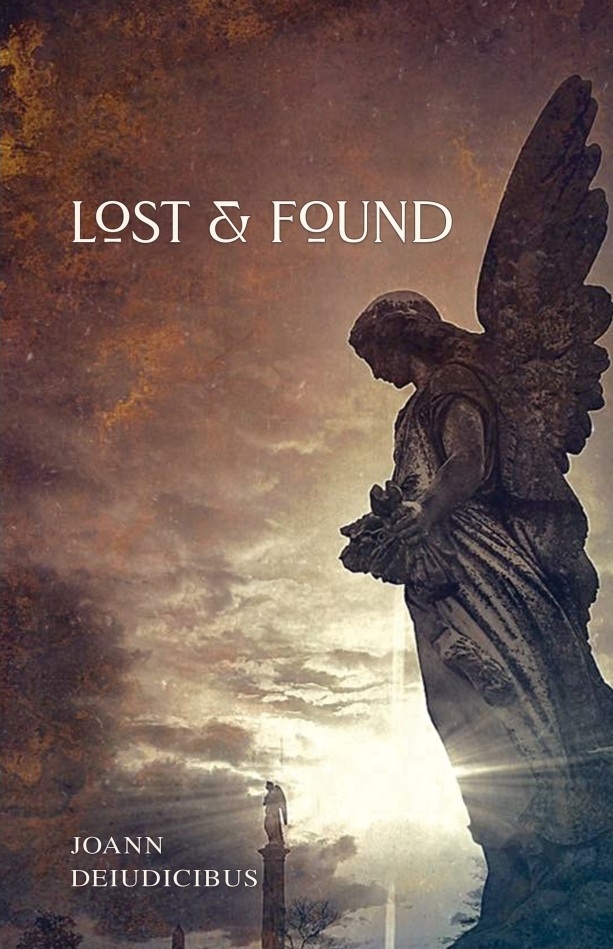
Lost & Found maps a path back to the self through blood and chosen families, scouring the body for answers to grief and blurred memory. These poems ask, who are we if we don’t have a history, and how can we become despite what’s kept in darkness, left unsaid? As a meditation on what we have to lose in finding ourselves, and what’s left to be saved if we can love with resilience, the poems in this debut chapbook consider ways home, all that is at once lost and found.
Her Bloody Project, Magdalena Louise Hirt
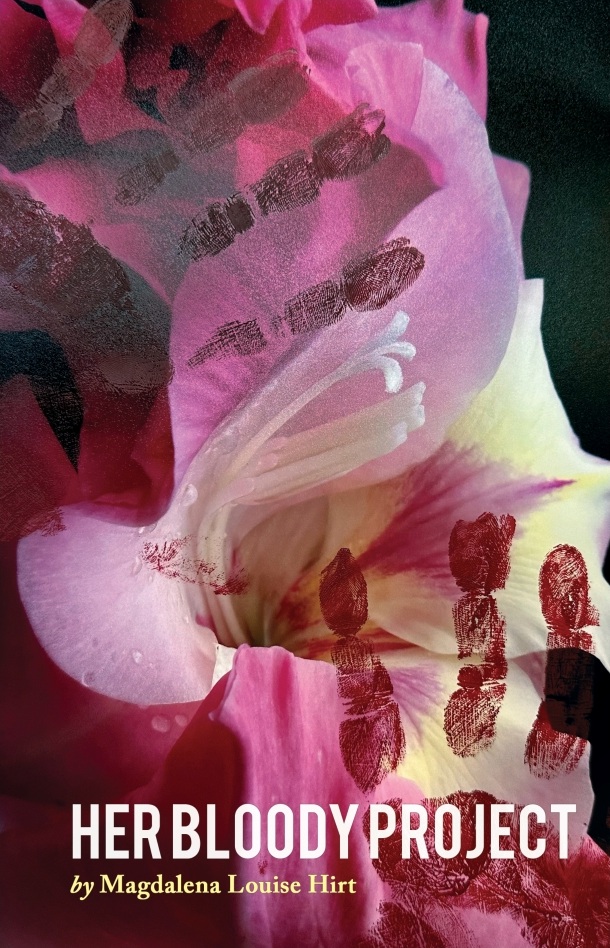
Her Bloody Project is a creative response to His Bloody Project by Graeme Macrae Burnet. It follows the same form as Burnet’s novel, but it is filled with poetry that deals with being raped at the age of sixteen. This is my past, which can haunt me still, but by ekphrastically responding to another author’s creativity, it promotes a literary ripple of healing. It’s trauma-induced, rape-related, childhood-robbing, crime-inflicted, victim-ignored, self-blamed, teenage-wronged, real-life poetry.
Don’t see a poetry chapbook published between 1/1 and 1/31 here? Contact us to let us know!

Contents
Book Excerpt: Further Thought by Rae Armantrout
Read the featured Excerpt Poem of the Month for January 2025, “Further Thought” from Go Figure by Rae Armantrout, along with a few words from the poet.
Read five poems by poet A.L. Nielsen, our first biweekly poet of the Winter 2025 issue, along with a few words about the poem “When We Walked”.
Chapbook Poem: The Poem as an Act of Betrayal by Benjamin S. Grossberg
Read the featured Chapbook Poem of the Month for January 2025, “The Poem as an Act of Betrayal” from As Are Right Fit by Benjamin S. Grossberg, along with a few words from the poet.
Jan. ‘25: Year One: What worked, what didn’t, and what to expect
Editor Aiden Hunt looks back at our first year and discusses changes to Philly Poetry Chapbook Review in 2025.
Three Poems by Shelli Rottschafer
Read three poems by poet Shelli Rottschafer, our second biweekly poet of the Winter 2025 issue, along with a few words about the poem “Because We Remember.”
Dancing With the Dead: On Ragnarök at the Father-Daughter Dance by Todd Dillard
“Todd Dillard successfully transgresses the unspoken cultural embargo on work that grapples with life during the COVID-19 pandemic in his new chapbook, Ragnarök at the Father-Daughter Dance.”
Read three poems by poet Wendell Hawken, our third biweekly poet of the Winter 2025 issue, along with a few words about the poem “First Hurt”.
Book Excerpt: Slow Chalk by Elaine Equi
Read the featured Excerpt Poem of the Month for February 2025, “Slow Chalk” from Out of the Blank by Elaine Equi, along with a few words from the poet.
Chapbook Poem: Caro M. by Angela Siew
Read the featured Chapbook Poem of the Month for February 2025, “Caro M.” from Coming Home by Angela Siew, along with a few words from the poet.
Read four poems by poet Natalie Marino, our fourth biweekly poet of the Winter 2025 issue.
A Conversation with Kate Colby
Poet Kate Colby discusses her latest chapbook, ThingKing, her creative writing practices, and her penchant for poetry chapbooks with PCR Editor Aiden Hunt in this interview piece.
Read three poems by poet Adele Ross, our fifth biweekly poet of the Winter 2025 issue, along with a few words about the poem “Heavy Water”.
Book Excerpt: The Self-Combed Woman by Laynie Browne
Read the featured Excerpt Poem of the Month for March 2025, “The Self-Combed Woman” from Apprentice to a Breathing Hand by Laynie Browne, along with a few words from the poet.
Chapbook Poem: To Let Go by Deirdre Garr Johns
Read the featured Chapbook Poem of the Month for March 2025, “To Let Go” from Fallen Love by Deirdre Garr Johns, along with a few words from the poet.
Read four poems by poet Sarena Tien, our sixth biweekly poet of the Winter 2025 issue, along with a few words about the poem “Mother Tongue”.
Life’s Lazy River Journey: On Tributaries by Aspen Everett
“A thread of adulation for matriarchal spirituality and the lifegiving value of water runs through the collection. Its first poem pays homage to [Toni] Morrison.” Read the full chapbook review by Shelli Rottschafer.
Three Poems by Jeanne Bamforth
Read three poems by poet Jeanne Bamforth, our seventh and final biweekly poet of the Winter 2025 issue, along with a few words about the poem “New Course”.
